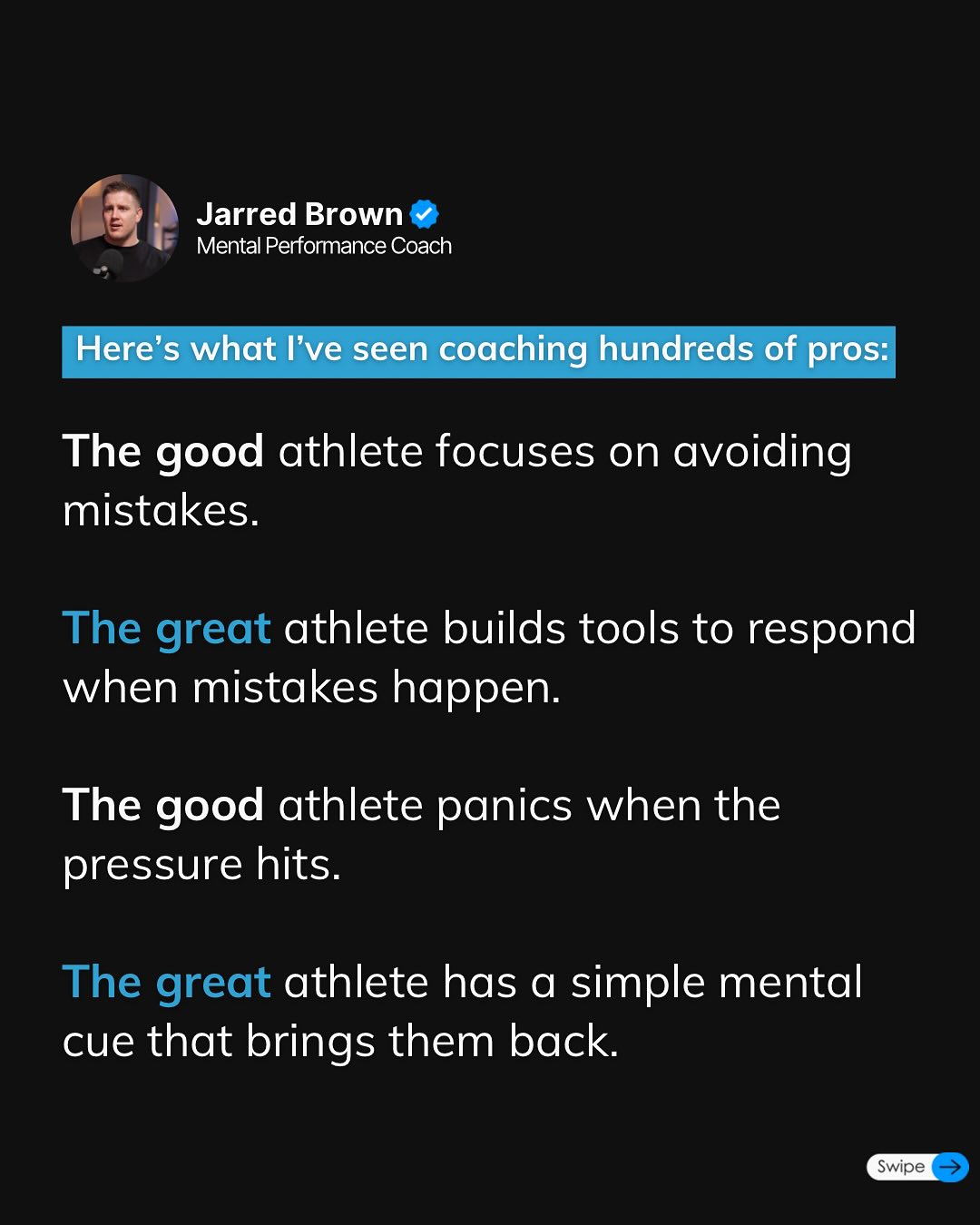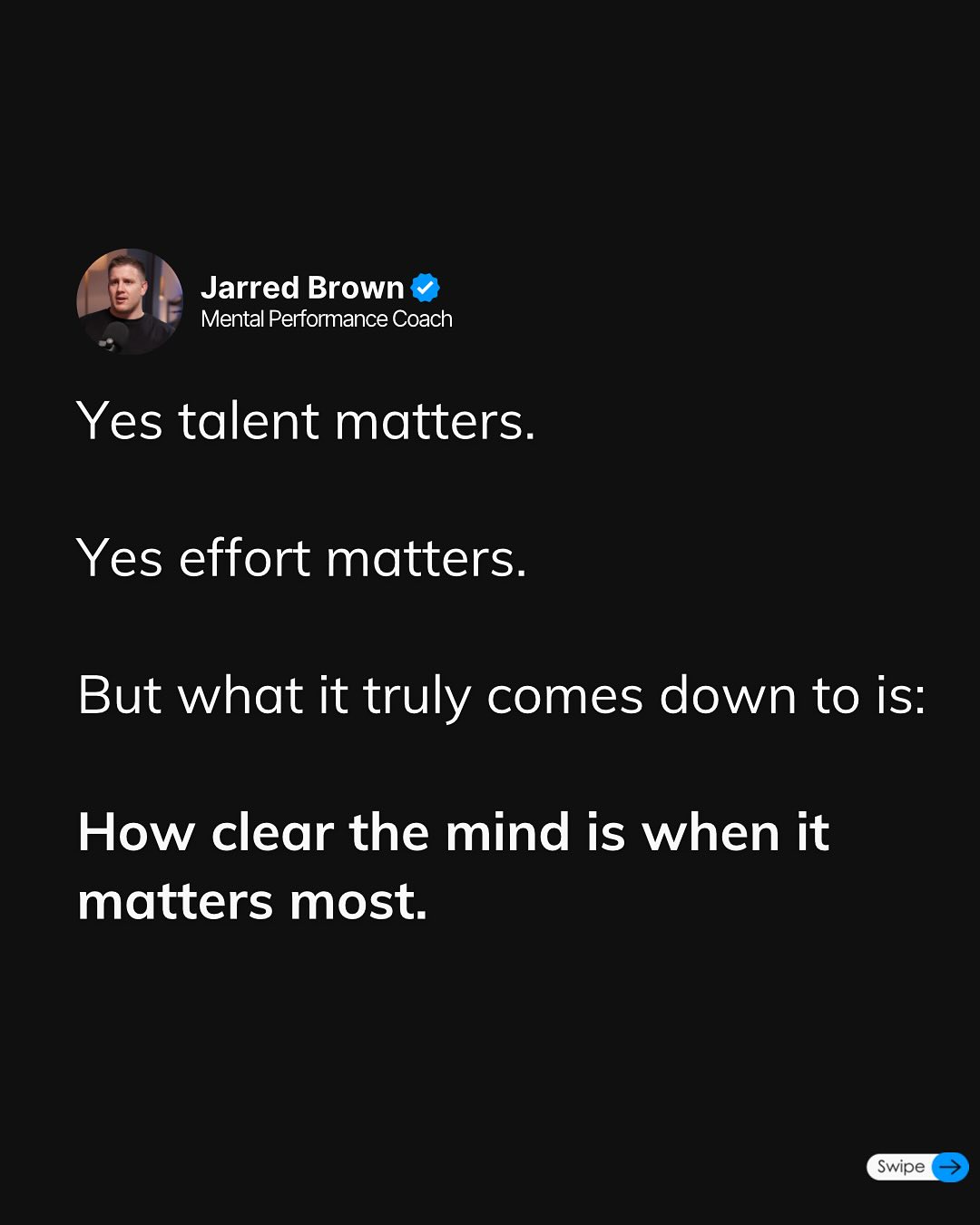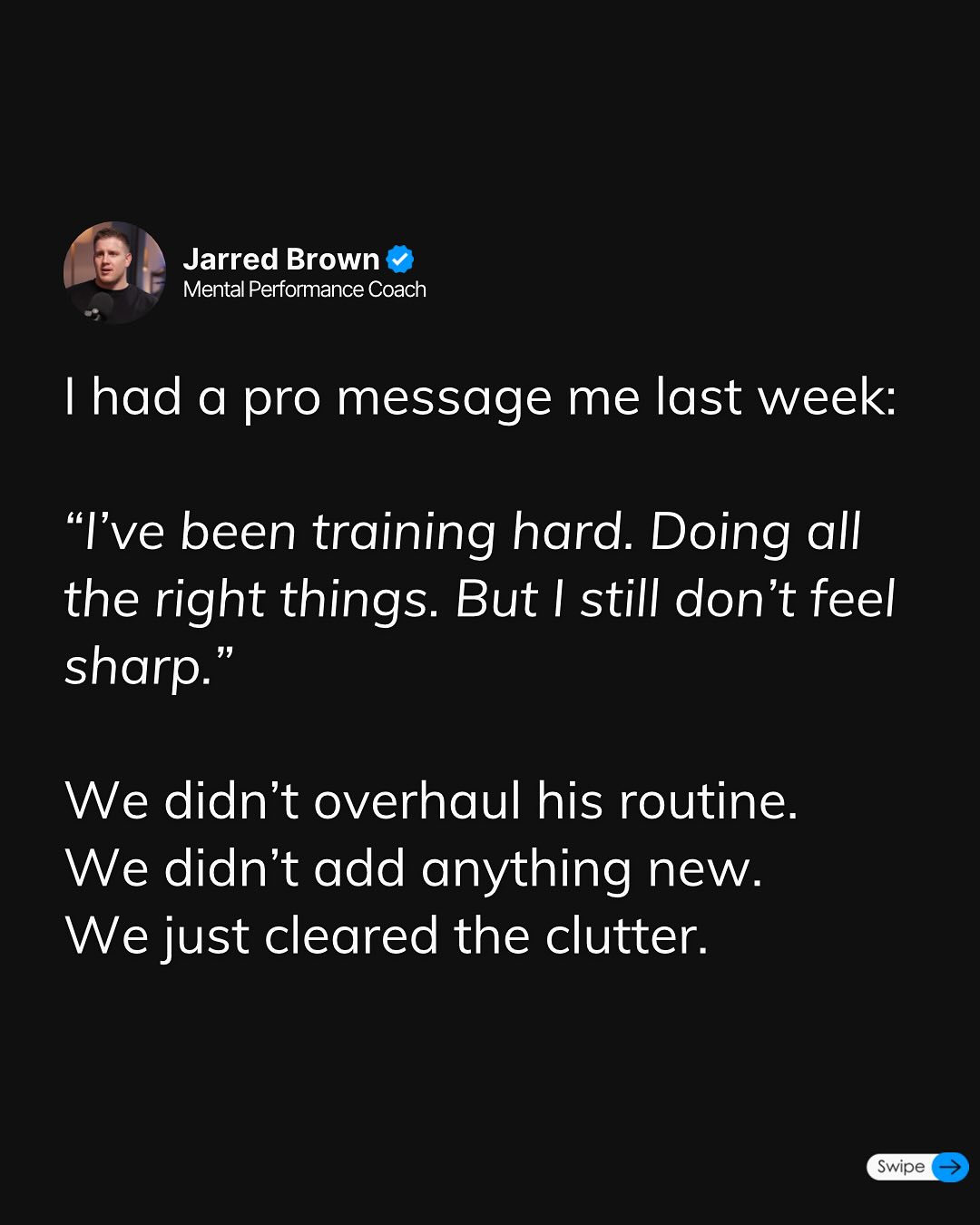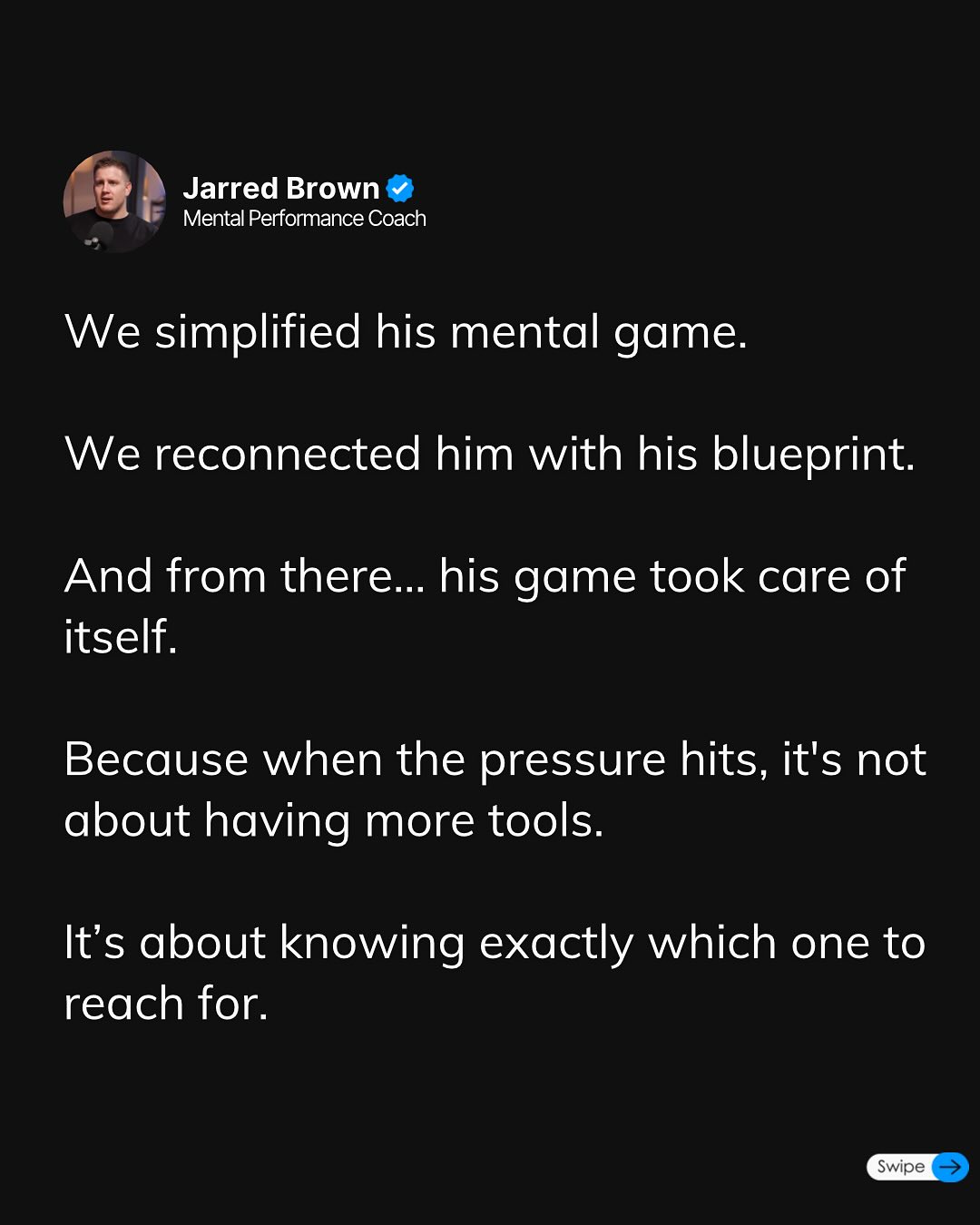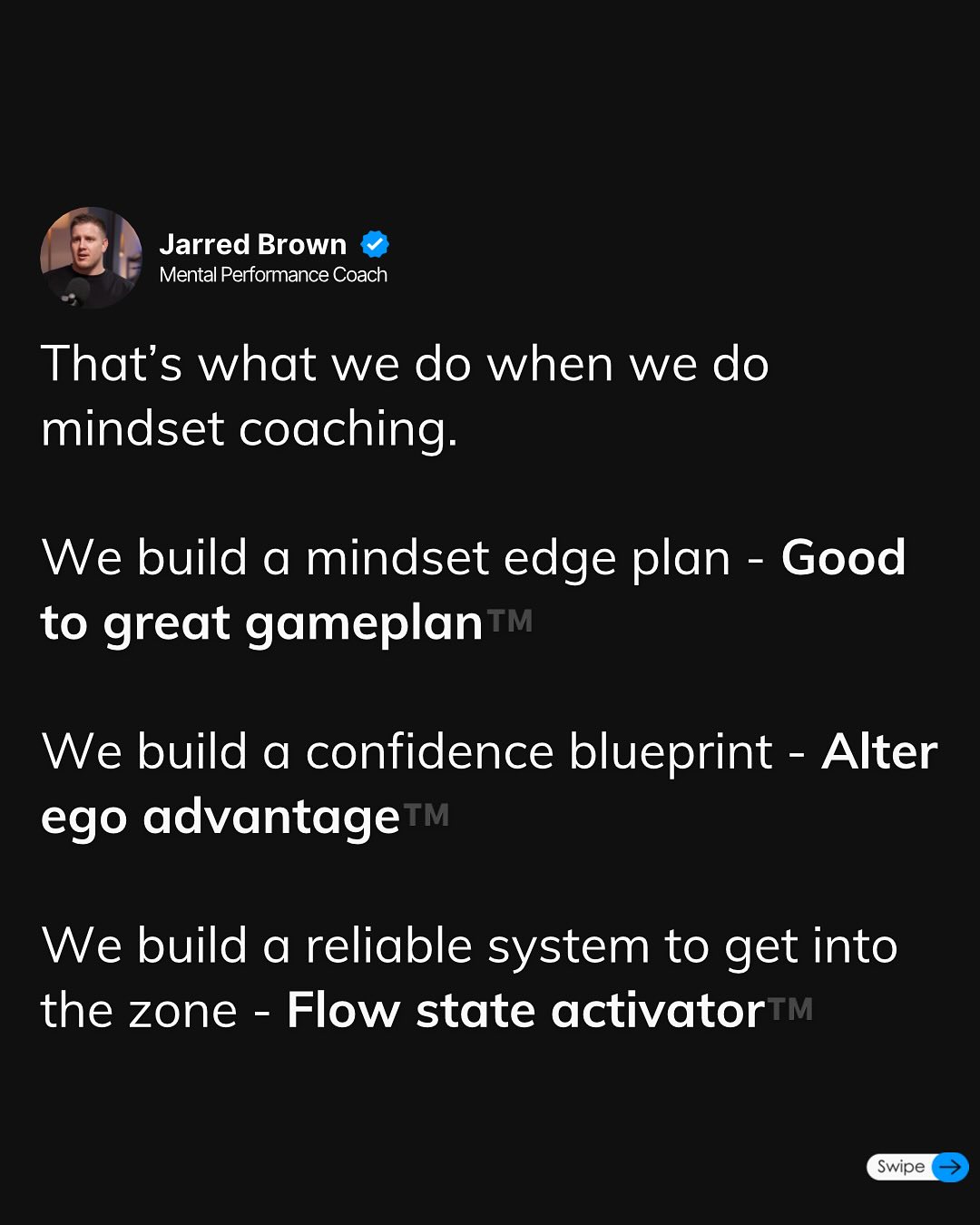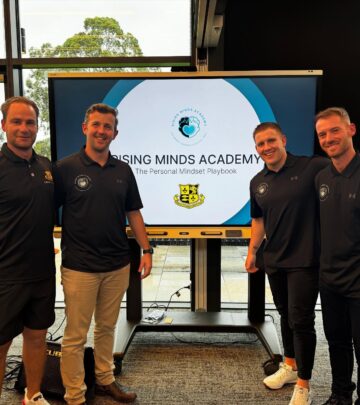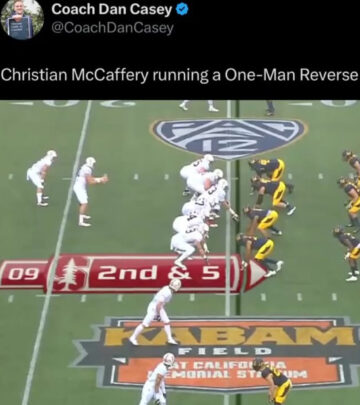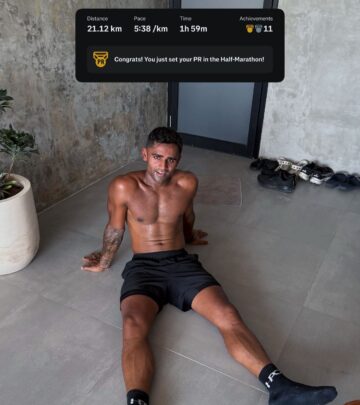Mindset Coaching: Elevating Athletes From Good To Great
Unlock mental clarity, ignite athletic excellence with targeted mindset coaching tips now
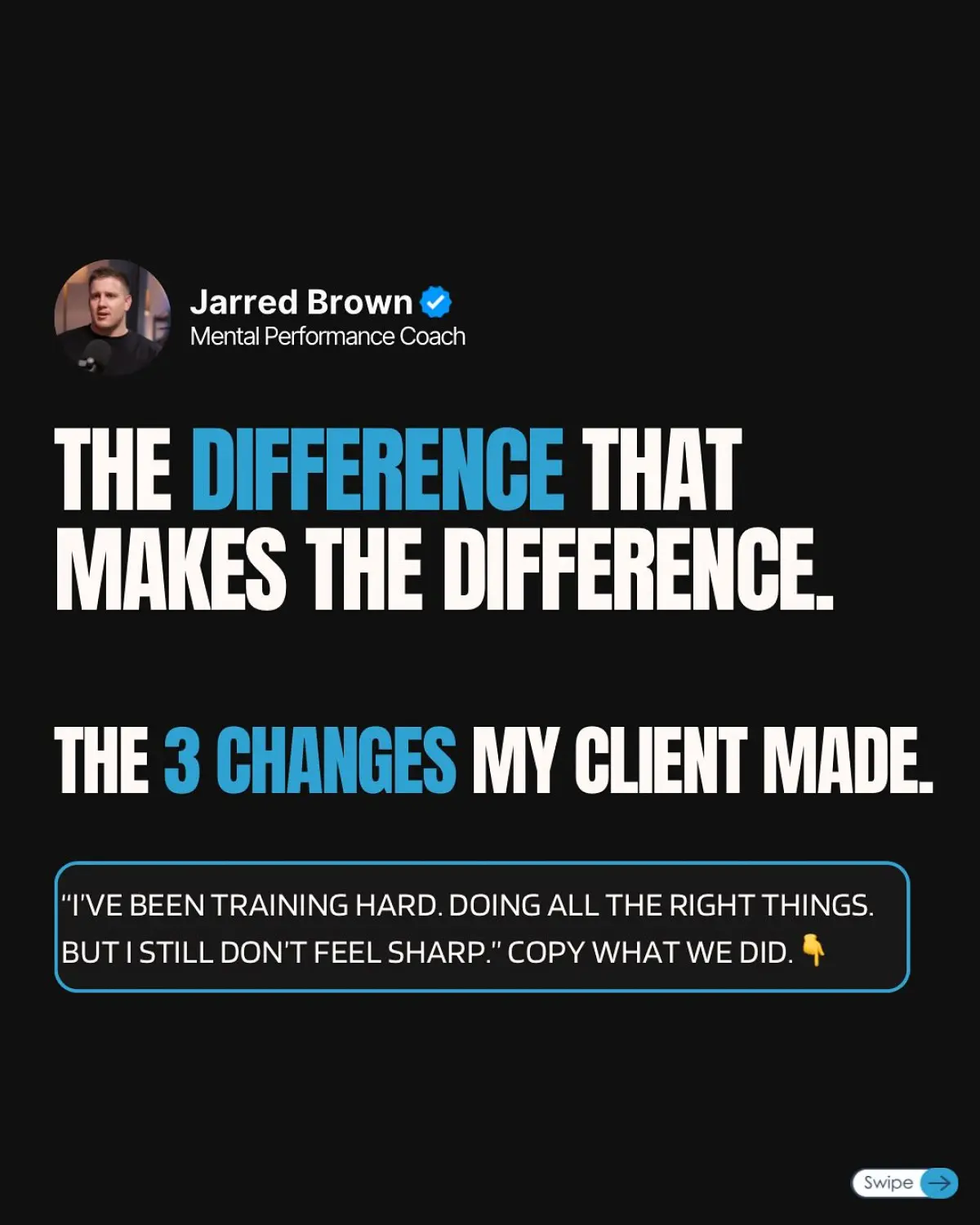
Image: Instagram
Jarred Brown, a leading mental skills coach, has spent years perfecting the art of mindset coaching for athletes. In his own words, “The difference that makes the difference” lies in a clear, focused mind when it matters most. Brown explains that while talent and effort are crucial, stripping away the clutter and establishing specific mental cues is what distinguishes the good from the great.
Mindset Matters
Many athletes, despite training hard and executing every drill to perfection, find themselves falling short when the pressure peaks. Brown’s approach is simple yet profound: the good athlete worries about mistakes and adds more drills, but the great athlete simplifies. By building mental tools such as the Good to Great Gameplan™, Alter Ego Advantage™, and Flow State Activator™, he shows that it is not about having more tools at your disposal but knowing exactly which one to use in the heat of the moment.
Drawing from his extensive experience coaching hundreds of professionals, Brown relates a telling example. One professional athlete, despite his rigorous physical work, admitted feeling unfocused when it counted most. Instead of overhauling his routine, Brown helped him clear the mental clutter and reconnect with his blueprint. This simple shift allowed the athlete’s game to flow naturally, reinforcing the idea that clarity in the mind is paramount.
From Good To Great
In Brown’s philosophy, the transition from being a good athlete to a great one is not about piling on more drills or creating noise. It is about a focused approach to practice and performance. The good athlete may panic under pressure, but a great athlete relies on a simple mental cue that brings him back to the present moment. His technique emphasizes a process-based focus where response to mistakes becomes the core strength. As Brown states, “When the pressure hits — it’s not about having more tools. It’s about knowing exactly which one to reach for.”
This perspective is echoed in several of his recent Instagram posts where he highlights similar principles. In one post, he shared the importance of not overthinking as the key to achieving a flow state. He explained that trying to avoid overthinking can paradoxically lead to it. Instead, elite athletes anchor their minds by focusing on response cues that have been honed with consistent practice. Another post detailed performance principles such as awareness, acceptance, and action – fundamental steps to bouncing back from mistakes quickly.
Building A Blueprint For Success
Brown’s coaching regimen involves creating what he describes as a “mindset edge plan.” This plan involves building a confidence blueprint and a reliable system to get into the zone. According to Brown, these systems serve as mental anchors during high-pressure situations. He explains that when athletes focus less on what outcome they want and more on the process that creates those outcomes, they can perform consistently at their best. His approach is a refreshing departure from the usual focus on physical training alone, emphasizing that a prepared mind is just as important as a prepared body.
In a recent discussion highlighted in an Instagram post, Brown recounted the journey of a young athlete striving to hit his target goals. The athlete’s original focus on quantifiable outcome goals—such as scoring a specific number of goals—was counterproductive. As he began tracking his performance cues instead, he found relief in the process and regained his natural flow. This realignment of focus from outcome to process is a recurring theme in Brown’s coaching, reinforcing the idea that the mental game is where the true battle is fought.
Tools For Transformation
The core of Brown’s strategy lies in a trimmed, effective approach to mental rehearsal. He dismisses the notion that more drills equal better performance. Instead, he champions simplicity. A cluttered mind leads to overthinking and inconsistent action. By applying a set of precise mental cues, athletes are better equipped to engage in their sport without succumbing to pressure.
While many might see this as mere motivational talk, the success stories from Brown’s clientele speak volumes. His clients have managed to cut through the noise, relying on a clear process that anchors them in the moment. This clarity is what allows athletes to transition seamlessly from reacting to proactively responding during critical phases in a game.
Brown’s methods remind us that the mental side of sports performance is often overlooked. His work underscores the value of a focused mind, showing that when athletes clear away the nonessential and connect with their core blueprint, excellence follows naturally.
Ultimately, Jarred Brown’s approach serves as a blueprint for athletes who are doing almost everything right yet struggle with mental pressure. His emphasis on simplicity, clarity, and process-driven performance highlights the transformative power of a clear mind in high-stakes moments.
Read full bio of Nisha Bharatan



